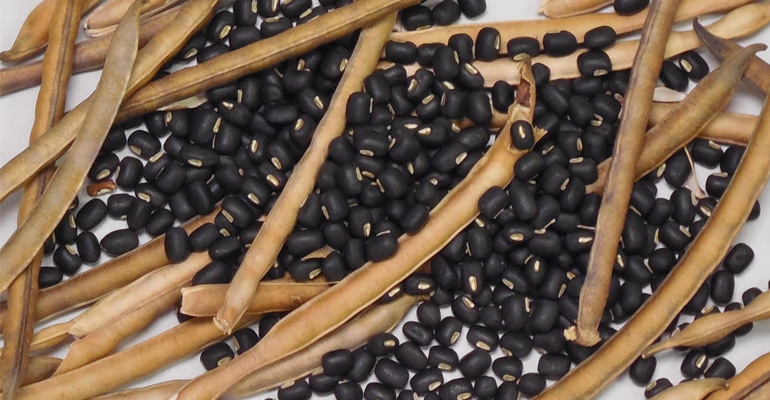July 10, 2019

University of California Riverside scientists have decoded the genome of black-eyed peas. Black-eyed peas, small beans with dark midsections, have been a global dietary staple for centuries due to their environmental toughness and nutritional qualities. In sub-Saharan Africa, they remain the number one source of protein in the human diet.
A genome is the full collection of genetic codes that determine characteristics like color, height, and predisposition to diseases. All genomes contain highly repetitive sequences of DNA that UCR Professor of Computer Science and project co-leader Stefano Lonardi likens to “hundreds of thousands of identical jigsaw puzzle pieces.”
To figure out how the jigsaw puzzle sequences fit together, Lonardi’s team assembled the genome many times with different software tools and parameters. Then they created new software capable of merging these various genome solutions into a single, complete picture.
With the success of this project, the black-eyed pea joins only a handful of other major crops whose genomes have been fully sequenced. The team’s work on the project was published in the June issue of The Plant Journal, where it was featured as the cover story.
Knowing which genes are responsible for qualities in individuals, such as color, size, or drought resistance will help breeders develop new varieties even better able to withstand external challenges.
Research on black-eyed peas, a legume also known as cowpea, started at UC Riverside more than 40 years ago. But cowpeas’ presence in Riverside predates the university by about 200 years.
This is the first high-quality reference genome for the cowpea. Work on it began three years ago, made possible mainly by a $1.6 million grant from the National Science Foundation. An additional $500,000 NSF grant also supported the computational efforts.
Source: University of California Riverside, which is solely responsible for the information provided and is wholly owned by the source. Informa Business Media and all its subsidiaries are not responsible for any of the content contained in this information asset.
You May Also Like




